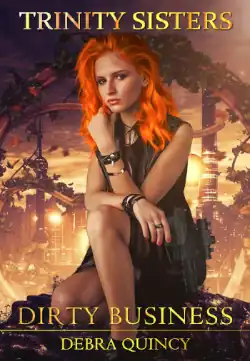I don’t read a lot, but once in a while I buy a promising book on Amazon, usually something about psychology or other deep topics. Recently, I finished a book I absolutely loved, and I couldn’t wait to give something back to the author, a heartfelt 5-star review, the kind of support every writer dreams of. I went in with nothing but enthusiasm and goodwill, ready to share my excitement with other readers. I even spent hours carefully writing and polishing my review. But the moment I tried to post it, I slammed into Amazon’s hidden rule: no reviews unless you’ve spent at least $50 a year with them. In an instant, joy turned into frustration. What should have been a simple act of appreciation was blocked by a paywall, yet another reminder of Amazon’s incredible greed, where even a reader’s honest praise comes with a price tag.
At first glance, this rule looks like a measure to stop spam. But let’s be honest, it doesn’t prevent fake reviews at all. Professional reviewers — and there are thousands of them — can just create new accounts, change IP addresses, and treat the $50 as a tiny business expense. It’s nothing to them. Meanwhile, readers like me, who genuinely want to support an author, are shut out because we don’t spend enough.
And the irony? Fake reviews are painfully easy to spot. They’re lifeless, generic, and completely lacking in passion. Real readers stand out instantly and you can feel the excitement when someone truly connects with a book.
Here is an example of a REAL review:
“This was probably the most graphic book I have read. The fact that I know this type of abuse and greed among the already rich happens made this book revealing. Whether this was fiction or fact doesn’t matter. These issues need to be addressed. Trafficking humans happens way more than the common person is aware. I live in South Dakota, a barren state with lots of open interstate. Our police and highway patrol really have their work cut out for them. They monitor highway activity and have caught many traffickers. I hope they never stop. The book was very well written but hard to read because I will never understand the evil in some people.”
And a fake that reads like a sales pitch:
“XXXXXX is, in my opinion, one of the most important books by XXXXX. It goes far beyond a technical manual, it shows how a real trader thinks and acts. What makes this book truly special is that the author trades what he writes and teaches what he does. Every strategy here is tested, logical, and consistent with real market behavior. There are no shortcuts or empty promises, only method, discipline, and clarity. The reading is smooth and easy to follow, but the content is deep. XXXX and XXXXX manage to explain complex Price Action concepts in a practical and simple way, showing how to apply them to any market or timeframe. It’s the kind of book you read, study, and come back to many times, because each time you revisit it, you learn something new. For me, this book represents the essence of real trading: simple, direct, and built on real experience. It helps you think like a trader, recognize patterns, act with confidence, and protect yourself with proper risk management. I’ve read almost everything XXXXX has written, and I can say that this book captures the mindset of an experienced trader better than any other, someone who’s truly in the charts every day, turning theory into practice. In short, it’s a must-read for anyone who wants to learn what really works, straight from someone who lives and breathes the market.”
I’ve seen how widespread this problem is. The moment I set up my Instagram account as an author, my inbox filled with DMs offering “review packages.” Guaranteed 5-star reviews on Amazon and other platforms, all for a fee. This is a massive, well-oiled industry, and Amazon cannot possibly not know it exists.
So why enforce a $50 barrier? Not to protect readers. Not to clean up reviews. The real reason is simple: to push more people to spend money. They hide behind claims of “fighting fake reviews” while silencing everyday readers and leaving the field wide open for the very professionals who sell reviews like a commodity.
This isn’t protection. It’s exploitation. Amazon profits four times on a book:
- Ads. Your book won’t sell without ads, unless you are already a known author.
- Every time you sell a book Amazon takes a big share.
- By forcing genuine readers to spend more just to be allowed a voice.
- Mass fake reviews drive purchases by faking popularity; no reviews = no sales.
The result? An ecosystem where ordinary readers are silenced by Amazon’s relentless greed, authors are pressured, and the loudest voices are often the least authentic. Amazon doesn’t just allow this. They’ve designed the system to make it thrive. And in the end, it’s readers and authors who pay the price.
Amazon, it’s time to stop a practice that blocks honest reviewers and simultaneously profits from the very paid-review industry you claim to oppose. Remove the $50 barrier, support genuine readers, and stop being dual-faced about the review ecosystem. Authors and readers deserve better.




